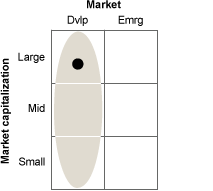I recently came into possession of a sum of money (a sale of commercial real estate by my family) and I'm trying to decide how I should balance investing it vs allotting those funds towards the purchase of a new home.
To give a bit more background, I currently live in an apartment condo with my wife that I own outright. Now that we're married, we're planning to move to the suburbs and buy a house. I'm planning to keep the condo and rent it out, and the sum of money is currently in diversified mutual funds. I'm trying to decide how much of the sum of money I should put towards the house as it relates to considering the home purchase a long term investment.
Any advice, opinions, or (especially) help with modeling this financial decision would be greatly appreciated. My family/friends are very biased towards real estate investment over other types of long terms investment, so I'm looking for a greater variety of opinions.
One thing to keep in mind is how much risk your willing to take, interest rate, return rate and where you are located (regulation where you are/real estate trends).
I'll give you the example of what I have been doing with a situation similar to yours.
I sold my house in the US and moved back to Canada and end up with a fairly large sum of money from the equity. So I bought my new house and pay most of it with the equity and financed the balance. Then within a year I bought a rental property, use a mortgage on the rental for the large portion and use a line of credit on my home to pay the rest.. In Canada, the equity on your primary home is capital gain-free but the interest and taxes are not tax-deductible (unlike in the US). However, for rental property it the reverse, the capital gain is taxed but the interest and taxes are not..
So my goal with this was to have most of the interest on my primary property to be also tax deductible (since that line of credit is used only for the financing of the rental property it now deductible). In addition this is what is call leveraging, since if you have enough funds, you're borrowing a large sum in the guise of mortgage on rental property and on line of credit, in the hope that the return on the investment is larger than the interest/costs you pay.
Also, instead of repaying my house and rental fast, I am using the extra cash to invest for later (retirement funds, tax free saving, kids education funds) and I am keeping my mortgage and line of credit at high level.
At the time I bought the house and rental, the real estate prospect were good so even if there is a market correction in the future I am still well ahead.
Because right now the interest rate is still low and the return are larger, I am generating a fair bit of money on 'borrowed' money.
So if you are disciplined financially, and your local prospect are good, I would consider mortgaging your condo if you are planning to rent it out. That mortgage will be tax deductible (i.e. the interest and fee you pay on your condo can be deducted from the rent it generate instead of paying the taxes on the full amount). Then use the money you get out of the mortgage to pay a large down payment of your new home and invest your lump sum you just got (or if you are in the US and your mortgage is deductible from your primary house as well, invest that money as well ).
Warning: this is NOT for everyone and it does pose some financial risk but it sounds like your in a situation where this could work. I would certainly check with local law and prospect before doing that.
Also be aware that how A LOT of rich people get rich. They borrow large sums and reaps the profit over the margins. You just need to stay within a acceptable level of risk, Don't overstretch yourself.
Borrowing itself isn't bad, what you want is low interest rate (like mortgage do) and a large positive net worth in assets that generate return.
For example, it you have 500k in investments and rental property and have a 250k in low interest loan (mortgage/line of credit), if your return is 8% and your interest is 4%, your are generating 40k in return and 10k in interest so 30 k net growth.If you had no loan, you only would have 250k invested so you would generate 20k instead. This is just an example how with the same amount of money you can generate more income leveraging.


